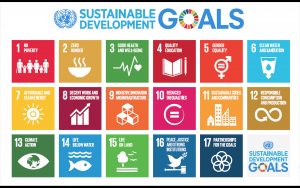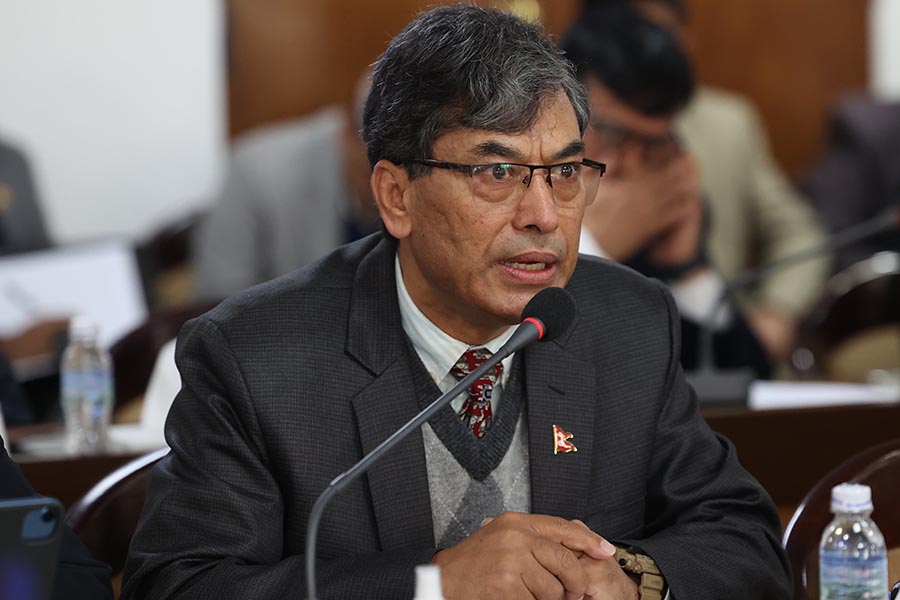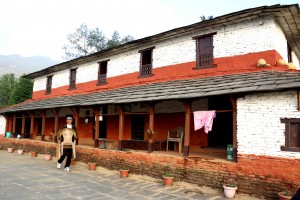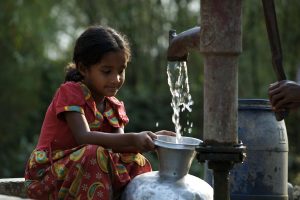Amidst the increasing global risks of climate change and humanitarian crises, transformative change and integrated action are essential to foster sustainable development. Though sustainability is at the heart of every conversation, also due to the coronavirus pandemic, the spread of sustainability knowledge is still sporadic.
There is a global demand for sustainability professionals to lead organisations towards creating shared value with environmental and social impact. The pandemic has created an opportunity for organisations to reinforce sustainable practices to adhere to the triple bottom line and further shared responsibility between individuals and organisations. This renews the importance of educating students on sustainability and developing an outlook towards sustainability careers. In Nepal, engagement between academia and industries is needed to foster opportunities and learnings for students. This can be achieved with cooperation between universities, private sectors, and developmental organisations, to learn and build capacity in the process.
Sustainability education
The three pillars of sustainability are structured on the environmental, social, and economic impacts. To build conceptual knowledge on sustainability, multi-disciplinary pedagogy and experiential learning are essential. Global risks and sustainability issues are complex as it is impacted by various disciplines and requires professionals with transdisciplinary understanding and skills to manage them.

Though sustainability is mostly talked about in the business environment and the development sector, sustainability education needs to be incorporated in all academic disciplines. There are only a few programs related to sustainability in Nepal, which are Masters in Sustainable Development, Master in Human and Natural Resource Management and Master in Development Studies offered by Kathmandu University; and Master in Resource Management and Rural Development offered by Tribhuwan University. However, it is a challenge for academic institutions in Nepal to be multi-disciplinary and attract educators with in-depth knowledge in sustainability dimensions, or provide work-integrated learning opportunities due to limited industries practising sustainability in Nepal.
Considering this, it can be beneficial for various faculties to co-create short courses and certification programmes in different aspects of sustainability catered to students as well as professionals. Conceptualising programs to help management students understand environmental risks, or for sociology students to comprehend the social impact of business can create multi-disciplinary learnings for students. Furthermore, development organisations can fund universities to create a participatory programme to engage students to co-learn and co-create ideas and concepts of sustainable development. By engaging students in research work, conferences, training, and field programmes, development practitioners can share real challenges and opportunities in the field of sustainability.
Academia-industry collaboration

Extensive collaboration between universities and industries is essential to foster the learning ecosystem. Universities can support knowledge transfer to industries via education and training, consultancy, and collaborative research, while industries can facilitate dialogues and programmes to share industrial experience, provide experiential learning opportunities for students, and placement programmes.
Collaborations between academia and industry are limited and it hinders the knowledge transfer process. By integrating academic knowledge and industrial experience, a cohesive learning plan can be designed. Institutions and universities can identify real challenges and develop programmes whereby student cohorts can engage and compete in case studies and project works. These structures can further be strengthened with mentoring from professionals and think tanks. One such initiative is Skill Lab, which works with like-minded colleges and organisations to teach and equip graduates with essential skills for future opportunities and reduce the academia-industry gap. This immersive approach creates opportunities to engage, undertake and develop knowledge with real-world application of sustainability.
Joining the PRME
A paradigm shift towards sustainability education is needed for a radical transformation to build the future generation of sustainability professionals. Universities committed to transforming education for sustainable development can benefit from Principles for Responsible Management Education (PRME), an initiative of the United Nations to enable academic institutions to scale up their education for sustainable development. It brings resources and a community of academics, businesses, students, and experts in a global learning platform.

Building experiential learning programmes by developing cohorts of management, environment, and sociology students to bring theoretical concepts and apply them practically in project works can add immense learning and value for the students. Education needs to be able to transform the lives of people and move beyond the rigid structures towards ecological thinking and awareness of our responsibilities to the world and incorporate local synergetic knowledge to cope with natural and socio-cultural hazards that are intensifying.
Way forward for transformation
By designing curriculum and specialisations focused on sustainability, academic institutions can build capable resources for sustainable development. By pooling resources and expertise, universities and industries can create engaging platforms for students, provide thematic short courses and workshops in the areas of sustainability. Innovative learning collaborations are needed to transform careers by building sustainable knowledge and exposure for college students.
The UN PRME programme offers an incredible opportunity for universities to join the sustainability education movement and take advantage of resources available through the programme and create sustainability initiatives within the university and for their students. Such pedagogical approaches can build a wave of professionals with a sustainability mindset and knowledge to contribute towards the sustainable development of the nation and create a transformational impact.

























